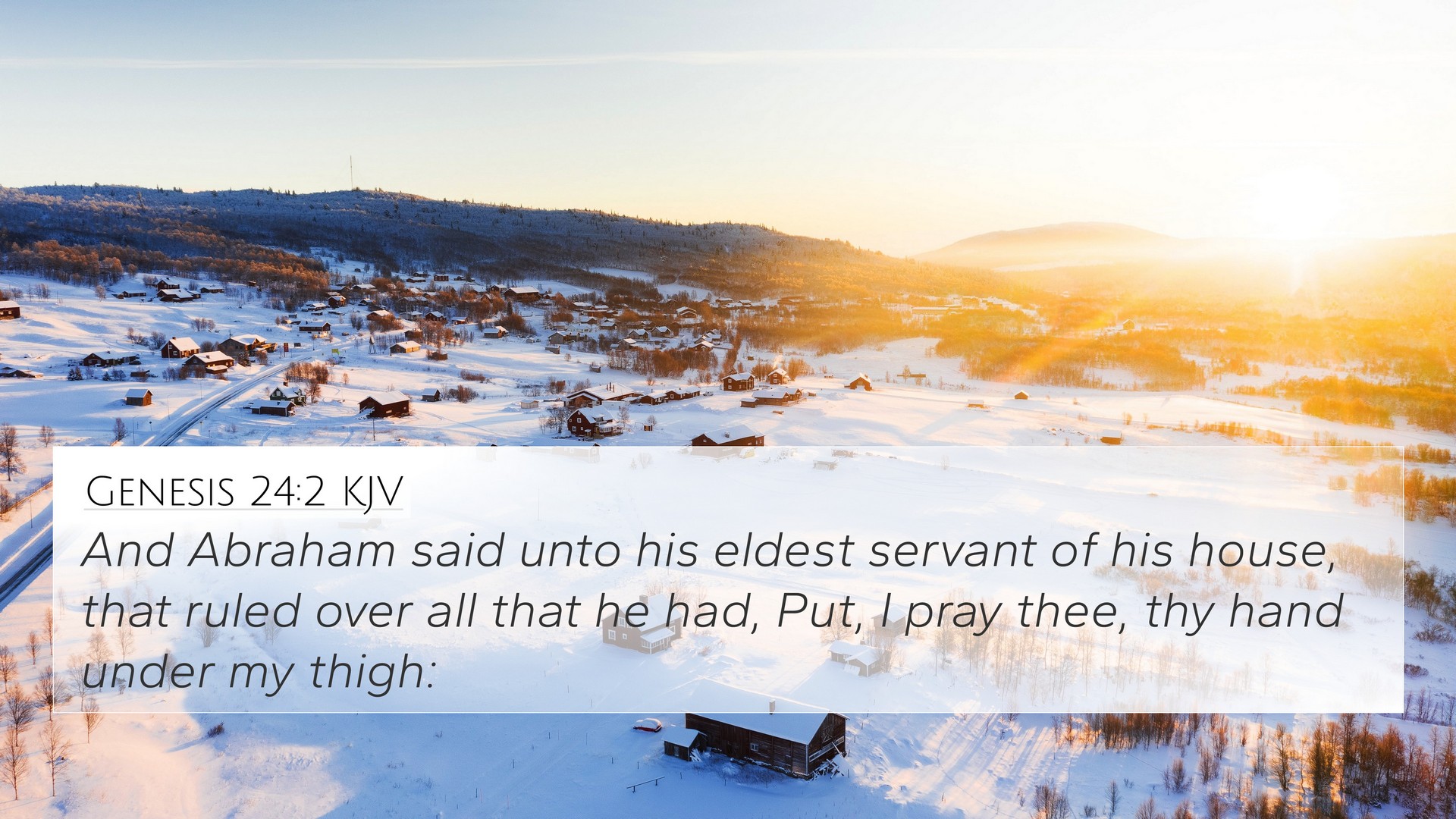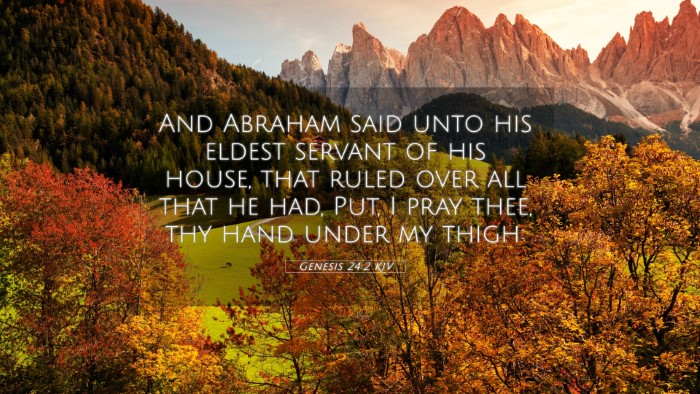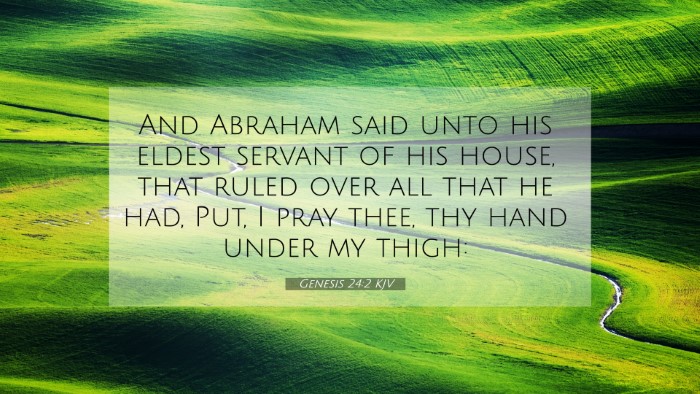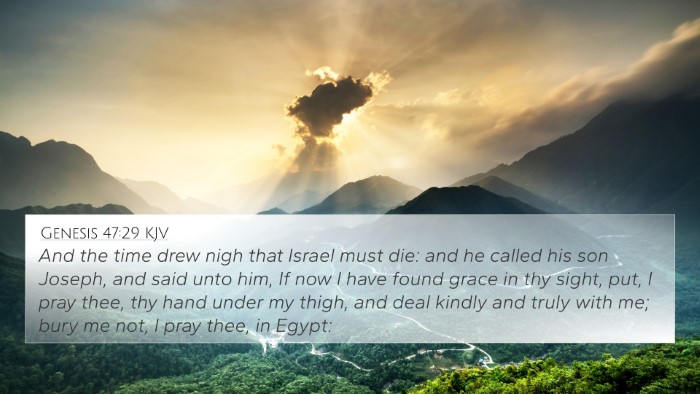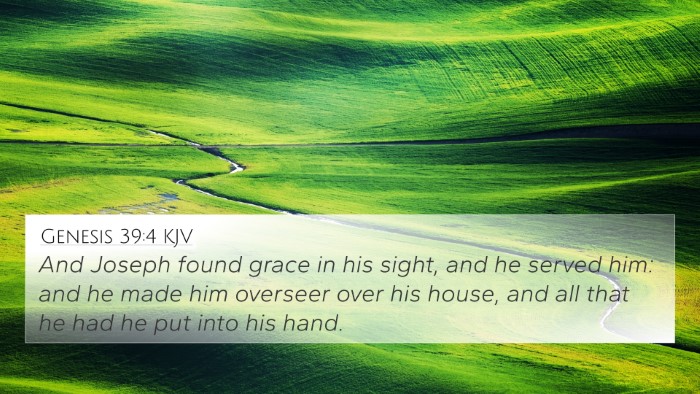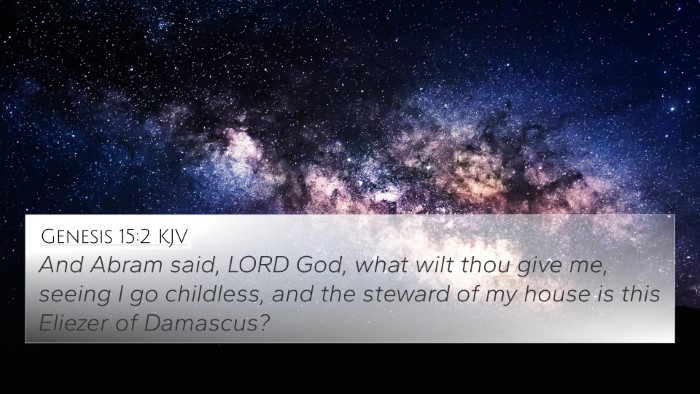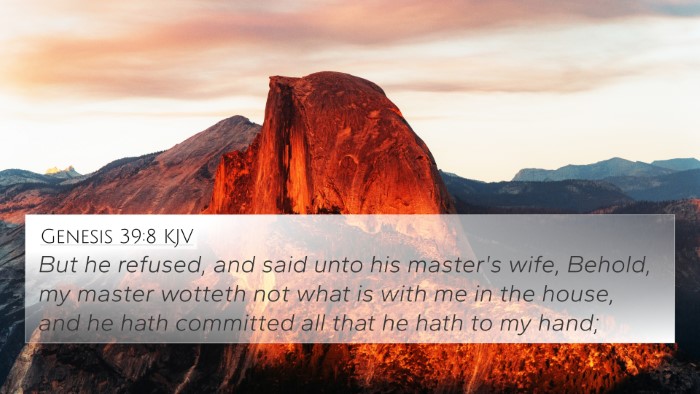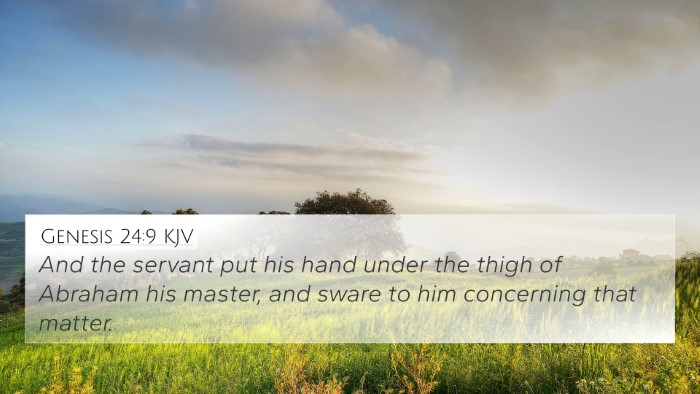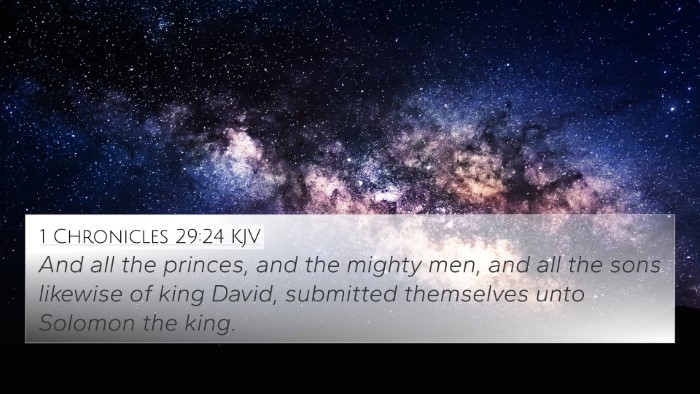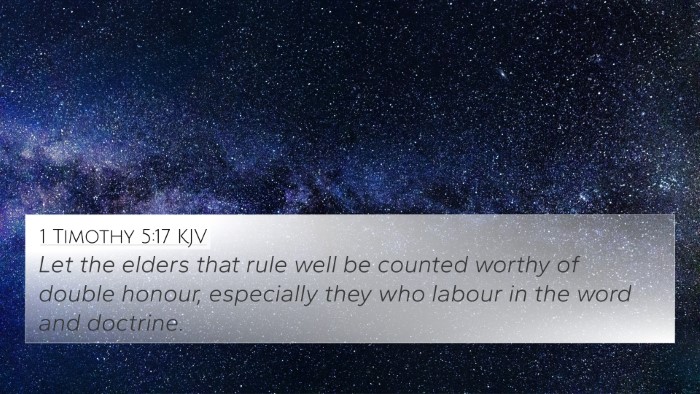Understanding Genesis 24:2
Genesis 24:2 states, "And Abraham said unto his eldest servant of his house, that ruled over all that he had, Put, I pray thee, thy hand under my thigh."
Key Themes and Insights
- Abraham's Authority: This verse illustrates Abraham's authority and responsibility as a patriarch within his household. His command to his servant indicates that he is in a position of power and influence.
- Significance of Oaths: The action of placing a hand under the thigh is emblematic of making a serious oath. This is a traditional practice signifying the gravity with which Abraham regards this mission.
- Servanthood and Trust: Abraham entrusts his eldest servant, highlighting the bond of trust and loyalty between them. The servant’s role is key in fulfilling God's promise regarding Abraham's lineage.
Commentary Insights
Matthew Henry notes that this verse sets the stage for the choosing of Isaac's wife, a significant event in the continuation of the Abrahamic covenant. He emphasizes Abraham’s faith in God's promises, evidenced by the careful consideration he gives to the appointment of a wife for Isaac.
Albert Barnes elaborates on the cultural context of the time, where such oaths were common. He suggests that the physical act underscored the seriousness of the servant's mission—finding a bride who would uphold the spiritual legacy Abraham desired.
Adam Clarke comments on the symbolism of placing a hand under the thigh, interpreting it as an ancient rite of swearing. He highlights the importance of lineage and separating oneself from influence that detracts from the worship of Yahweh, which was essential for the chosen people.
Biblical Cross-References
- Genesis 12:1-3 - The promise of identity and land given to Abraham.
- Genesis 17:19 - God's promise regarding Isaac’s birth and role in the covenant.
- Genesis 24:34-36 - The servant's recounting of Abraham's instructions and God's guidance.
- Genesis 28:1-4 - Isaac’s blessing of Jacob includes direct references to the covenant promises.
- Exodus 2:1-2 - The idea of preordained lineage leading to key biblical figures.
- Ruth 1:16 - A strong family commitment and loyalty in choosing a partner.
- Matthew 1:1-2 - The genealogy of Jesus Christ ties back to Abraham, emphasizing lineage significance.
Connecting the Verse: Thematic Bible Verse Connections
The relationships between the characters and events in Genesis 24:2 serve to highlight broader themes in scripture, such as faith, obedience, and the pursuit of divine will. This opens a dialogue with other scriptures, allowing believers to engage in a deeper understanding of God's unfolding plan.
Recommended Tools for Bible Cross-Referencing
For those studying Genesis 24:2 in relation to other scripture, consider utilizing:
- Bible Concordance: A valuable tool for locating specific verses or themes.
- Cross-Reference Bible Study: This technique aids in discovering relationships between scripture.
- Comprehensive Bible Cross-Reference Materials: A guide for deeper exploration of thematic connections.
Conclusion
Genesis 24:2 encapsulates critical aspects of faith, tradition, and the continuity of God's promises through Abraham's life. Understanding this verse with the context of its commentaries and cross-references enriches one's study and appreciation for the interconnectedness of biblical narratives.
Additional Questions for Reflection
- How does Abraham's act of oath-making reflect on our understanding of commitments today?
- What can we learn about divine guidance from Abraham's approach to selecting a spouse for Isaac?
- In what ways does this verse connect to the broader themes of promise and legacy throughout the Bible?
